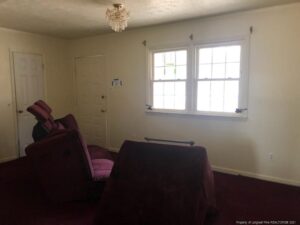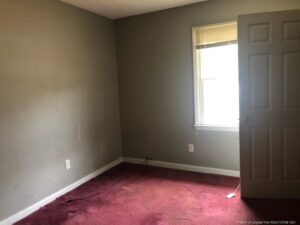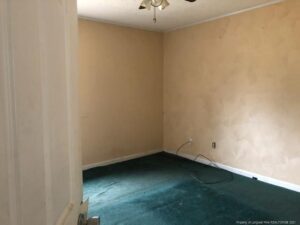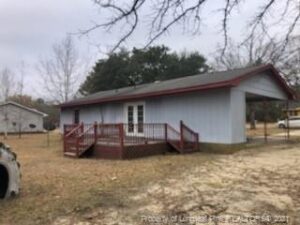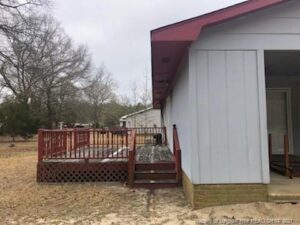Passive Real Estate Investing
Capital Group Private Banking
We offer a passive real estate investing for investors to access and partner with us for Passive Real Estate Investment in our Capital Group Private Banking Division for Fix and Flips Foreclosures and we offer a three ways for our Passive Real Estate Investment Group to profit with us unlike any other Passive Real Estate Investment Group in the industry to our knowledge real estate investing for busy professionals. We’re growing wealth with real estate investment properties and distributing the cash flow with our investors. Our real estate assets are capitalize at a discounted rate at acquisition to offer equity protection for our investors. Our unique triple cash flow is unlike any other with income from debt, points and equity sharing. Innovative Real Estate Investment Services. Welcome to real estate investing for busy professionals.
Call Now To Get More Information and
Learn How You Can Share In Fix & Flip Profits!
Passive Real Estate Investing
We offer a passive real estate investment for investors to access and partner with us for Passive Real Estate Investing in our Capital Group Private Banking Division for Fix and Flips Foreclosures and we offer a three ways for our Passive Real Estate Investment Group to profit with us unlike any other Passive Real Estate Investment Group in the industry to our knowledge.
Our goal is to create long-term partnerships with our investors through successful transactions while targeting outsized returns. We are excited to welcome new accredited and non-accredited investors daily and to deliver compelling opportunities to join us in the investments you choose. We have specialize in real estate investing for busy professionals.
Passive real estate investing refers to investing in real estate without actively managing the property. It is a way for individuals to invest in real estate without having to be directly involved in the day-to-day operations and responsibilities of property management.
There are several ways to invest in passive real estate, including:
Real estate investment trusts (REITs): REITs are companies that own and manage income-producing real estate, such as apartments, office buildings, and shopping centers. Investors can buy shares in a REIT and receive a portion of the profits generated by the properties.
Real estate crowdfunding: Real estate crowdfunding allows individuals to invest in real estate projects through a crowdfunding platform. The platform pools the funds of multiple investors to finance a real estate project, and investors receive a portion of the profits generated by the project.
Turnkey rental properties: A turnkey rental property is a fully managed rental property that is ready for tenants. Investors can purchase a turnkey rental property and receive passive income through rent payments without having to manage the property themselves.
It’s important to carefully consider the risks and potential returns of each investment option and consult with a financial advisor before making a decision. Passive real estate investing can provide passive income and diversification to your investment portfolio, but it also involves some risks and requires careful research and due diligence.
How To Become A Private Investor?
Passive Investing Real Estate
924 Johnson Street, Raeford, NC is one our recent passive real estate investing “Fix & Flips Foreclosure Properties”. As a real estate asset manager, we bought this asset at auction for $49,600.00. We did a rehab for approximately $39,700.00. We sold the property $160,000, which was above our list price of $154,900. We walked away with a Net Profit of $57,106.48. You could have earned 20% of the profits and had an annualized return of 65.30% from investing just $30,000.00. It’s easy to start making profits with passive real estate investing by partnering with a professional asset manager with a proven track record with Banks to acquire REO’s and Foreclosures.
Listed below are the photos of the property prior to rehab and you will see why it’s important to partner with Capital Group who does all the heavy lifting of finding the right property with equity and a good market and with the right licensed contractors to complete the rehab according to plans.
Before Photos of the Fix & Flip at 924 Johnson St, Raeford, NC
After Rehab Photos of the Fix & Flip at 924 Johnson St, Raeford, NC
By partnering with Capital Group you will have peace of mind with our process. We make sure the contractors that work on our projects are licensed and accountable. We only pay for work according to our budget and scope of work. In our passive real estate investing for busy professional program. We protect your interest by making sure the property is complete according to plans.
What is Passive Real Estate Investing?
Passive real estate investing is when you the investor invest your money and someone else does all the work for you on your behalf. This often occurs in a real estate investment trust (REIT) or real estate partnership where you don’t play an active role. This is ideal for individuals who are busy and don’t have the time or experience to do all the active work involved. Real estate investing for busy professionals.
We offer investors access to partner with us for Passive Real Estate Investing in our Capital Group Private Banking Division for Fix and Flips Foreclosures and we offer a three ways for our Passive Real Estate Investment Group to profit with us unlike any other Passive Real Estate Investment Group in the industry to our knowledge.
Our goal is to create long-term partnerships with our investors through successful transactions while targeting outsized returns. We are excited to welcome new accredited and non-accredited investors daily and to deliver compelling opportunities to join us in the investments you choose.
Put simply, passive real estate investing is investing in real estate without substantial hands-on effort or active participation from the investor. There are primarily two methods of passive real estate investing—direct or indirect.
Direct passive real estate investing
Indirect passive real estate investing
On the other hand, indirect passive real estate investing is a process where individuals invest in a REIT (Real Estate Investment Trust) or a real estate related mutual fund. This form of real estate investing is considered passive because there is no day-to-day management needed and it’s considered indirect because it doesn’t involve a specific piece of real estate. Investors collect passive income as returns or dividends from funds.
Passive real estate investing refers to a strategy where investors contribute capital to real estate projects without actively managing the properties themselves. Examples of passive real estate investing include real estate investment trusts (REITs), crowdfunding platforms, and private equity funds. REITs are publicly traded companies that invest in real estate and pay out dividends to their shareholders. Crowdfunding platforms allow investors to pool their money together to invest in a particular property, with returns based on the property’s performance. Private equity funds typically require high minimum investments but offer the potential for high returns through direct investments in real estate projects. Passive real estate investing can be a great way to diversify a portfolio and generate passive income without the hassle of property management.
Often in life we work on major projects for big profits but forget to celebrate. One of the best ways to reward yourself is by taking a vacation. The best vacation club for discount rates is exploreoccasions.com.
Join Our Investment Community of Passive Real Estate Investors
Earn 12% – 18% Note Rates Secured by Real Estate
- Gain access to our Bank Foreclosure Fix & Flips
- Start earning returns that are usually reserved for the ultra wealthy
- We increase your yields by paying you profits on points, interest and equity
- real estate investing for busy professionals
- Get started today and earn double digit returns and annualize returns from 36% to 70%

When we listed our property we only allowed one weekend to receive offers. See what our agent listed below for this fix and flip passive real estate investment.
New renovation sure to please! All new flooring, fixtures, paint, appliances, vanity, blinds, and more! Perfect starter home or investment property. Located on a big, corner lot and convenient to Fort Bragg, Fayetteville, and Pinehurst. Pretty kitchen has LVP flooring, SS appliances, subway tile backsplash, and granite counters! Attractive vanity in the bathroom. Front porch and stained deck in the back yard. Carport with outside storage. This one won’t last long: Monday April 11th 5pm is the deadline for offers! Learn more about online real estate courses.
Travel Benefits for Our Investors
If you’re in the market for travel and want to reap the benefits of a premiere travel club then we recommend Occasions.Travel for Air, Hotel, Resorts, Cruises and Activities.
Hometown Heroes Program Florida
The Florida Hometown Heroes Housing Program through the Florida Housing Finance Corporation helps make homeownership more affordable for eligible front-line workers such as law enforcement officers.

Group real estate investing refers to a type of investment strategy where a group of individuals pool their resources to purchase, manage, and profit from real estate properties. The goal is to spread the risk and pool resources to purchase larger, more lucrative properties that would be difficult or impossible to purchase individually.
Group real estate investing can take several forms, including:
Syndicates: A syndicate is a group of investors who pool their resources to purchase and manage a property. The syndicate hires a property manager to manage the property and distribute profits among the investors.
Joint Ventures: A joint venture is a partnership between two or more individuals to purchase and manage a property. Joint ventures can provide more control and a higher level of involvement for the investors compared to a syndicate.
Real Estate Investment Clubs: A real estate investment club is a group of individuals who pool their resources and knowledge to invest in real estate. The club may purchase properties as a group or may provide resources and support to individual members to purchase properties on their own.
Group real estate investing can provide several benefits, such as access to larger investment opportunities, lower risk through pooling resources, and the opportunity to learn from and network with other investors. However, it also involves some risks, such as the possibility of mismanagement by the group’s leaders or disputes among the group members. It’s important to carefully consider the terms of the investment and the experience and credibility of the group leaders before making a decision.
Real Estate Investing
Real estate investing refers to the purchase, ownership, management, and sale of real estate properties with the intention of generating income or capital appreciation. It is a popular form of investing that can provide a variety of benefits, including steady income through rental properties, potential appreciation of property value over time, and diversification of investment portfolio. To get access to fix and flip loans visit Capital Group Private Investor Mortgage Funding.
There are several ways to invest in real estate, including:
Residential rental properties: Purchasing a single-family home or a multi-unit property to rent out to tenants.
Commercial properties: Investing in office buildings, shopping centers, and other commercial properties for rental income.
REITs (Real Estate Investment Trusts): Investing in a trust that owns and manages income-producing real estate.
Fix and flip investments: Purchasing a property in need of repair or renovation, fixing it up, and selling it for a profit.
Raw land: Purchasing undeveloped land for the purpose of holding for long-term appreciation or future development.
It’s important to consider factors such as location, market conditions, and potential rental income or appreciation before making a real estate investment. It’s also advisable to consult with a financial advisor and a real estate professional to understand the risks and potential rewards of real estate investing.
By using realestateinvestingloans.org, investors gain access to practical tools, competitive loan programs, and clear guidance that supports smarter decisions in real estate investing.

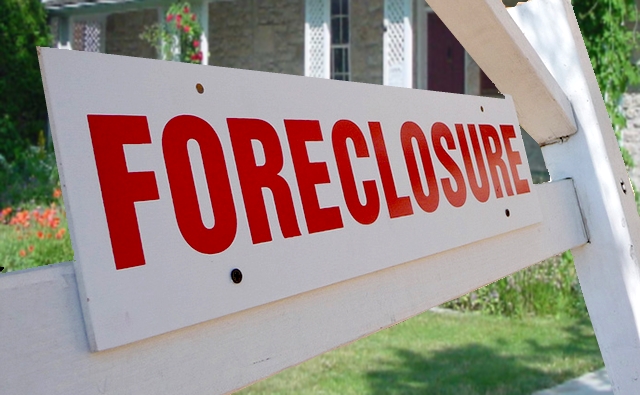
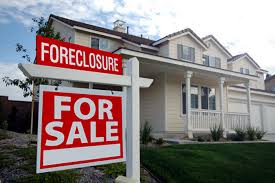
Real Estate Investment Group
The Capital Group Private Money Loan Banking Division focuses on building wealth with our real estate investment group (REIG). We focus the majority of our efforts and capital on real estate. We search for profits with our real estate investment groups by what we choose to buy, renovate, sell or finance. Our real estate investment groups commonly invest in multi-unit properties, fix and flips, fix and rents and many other strategies that the market directs us to based on real estate investment analyses.
Generally real estate investment groups do not qualify to be a real estate investment trust (REIT). As a real estate investment group we could have multiple partners that focus the majority of our business on real estate. At Capital Group we specifically focus on real estate investing and our specialty currently is on “Fix & Flips” that we acquire directly from asset managers or auctions on properties that have been foreclosed. Our system is specifically designed for real estate investing for busy professionals.
What we do differently than anyone else to our knowledge is that we acquire the asset directly from foreclosure usually from 60 – 65 percent of the market value based on repairs and the after repair value (ARV), then we offer usually one investor the opportunity to invest by becoming the lender of a second mortgage or deed of trust. We then offer monthly cash-flow from the interest rate that usually range from 8.00% – 12.00% depending on the property. We often offer a an opportunity for the investor to earn a point or two from the loan. One point is equal to 1% of the loan amount. If someone invested $50,000.00 and if we paid 1 point, then they would receive $500.00 in immediate gains or cash-flow. Then on top of the monthly cash flow from the interest rate, the investor will share in a portion of the equity at conversion or sale, which usually ranges from 5 to 20 percent depending on the real estate investment and the amount of capital invested. When the initial capital is invested, it will be invested in Capital Group Private Investor Mortgage Funding, LLC as a convertible note. After the acquisition the note is converted to a second mortgage or junior mortgage on the subject property which makes the real estate investment secured with the real estate asset.
What is the difference between passive investing and active?
In active real estate investing, though you might get the most control and the best tax benefits with fewest layers of fees, it requires extensive knowledge and can be a hassle for the landlord—the active participant. While in passive real estate investing, there are no landlords. Instead, investors invest through syndications, online crowdfunding, individual real estate funds, real estate investment groups and real estate investment trusts. Passive real estate investing requires the least experience and hassle while offering more diversification and liquidity. Many investors buy houses in North Carolina.
The main difference between active and passive real estate investing is based on the amount of continuing work involved to support the investment. Get started with real estate investing for busy professionals.
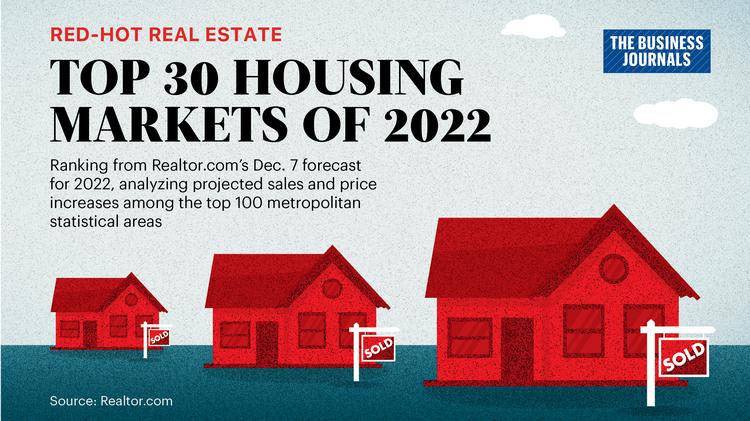
Fix & Flip Investing
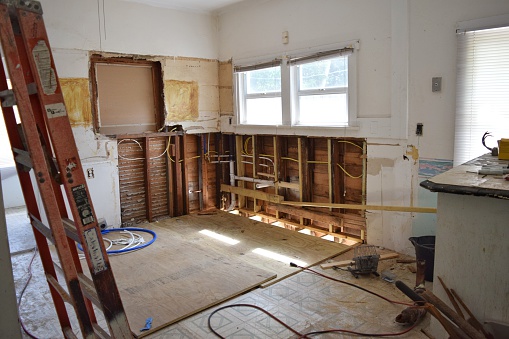
We Buy Fix & Flip Foreclosures
Fix-and-flip is the strategy of purchasing a property, renovating it, then selling it at a profit.
Investors typically buy a property at a discount because of its condition. It might have lapsed into disrepair due to abandonment or because the current owner couldn’t pay for the upkeep. Sometimes the property needs only some aesthetic updating but, more frequently, it requires major renovations. In some cases, it might not be legal to occupy the house until the investors can prove that they made certain repairs.
After the investors fix up the property, the next step is to sell it as quickly as possible and at as much of a profit as possible. We also invest in properties as cash buyers in Florida. We recommend Home Trust for fast cash buyers.
How Our Passive Investors Earn Multiple Revenue Streams?
Points
When you partner with us as a passive real estate investor you will be paid like the lender which you are and receive compensation from 1 – 2 points on your investment amount. For example if you invest $50,000.00 you will receive from $500.00 to $1,000.00 in up front fees as a private investor lender. This is almost unheard of for passive real estate investors and we pass it through to you. You are truly reaping the benefits of being the private lender and not the borrower. This make our investment that more in demand from any other passive income fund.

Interest
We pay our private real estate investors “Interest” on a quarterly or monthly basis. The distributions are directly deposited in your investment account and will usually range from 8.00 – 12.00% depending on the amount invested and the property offering. For example if you invest $50,000.00 and your interest rate is 10.00%, you will receive $416.67 per month or $1,250.00 quarterly. If you invest $100,000.00 and your interest rate is 12.00%, you will receive $1,000.00 per month or $3,000.00 quarterly.

Equity
We focus on Bank Real Estate Owned (REO’s) or Foreclosures because we have equity built in the property at acquisition. Then we have forced equity from the renovation to the property almost immediately usually within 90 days or less. But what our Private lender investors love most is that their investment is secured and we share a portion of the equity. This usually takes their interest rate return from 10 percent to and annualized return to over 50% or more and creates a greater demand for our private real estate investment program.

About Us
Foreclosures Acquisitions
The Capital Group Private Banking Division focuses primarily on acquiring the right properties directly from foreclosure also know as Bank Real Estate Owned (REO’s). This allows us to buy or acquire assets at discounted prices to help insure greater profits and returns.
Licensed Contractors
Because of our experience and expertise we only used licensed contractors that we have teamed up with to be certain that we’re getting quality work done on the properties. We also don’t pay our contractors until the scope of work has been inspected and met certain guidelines .
Our Private Investors
As a Capital Group Private Banking Division Investor, we want you to know that we wouldn’t have as much success with you the investor. You make possible for the property to be improved and help build America’s Community to be vibrant and safer. You help a family access a new home.
Growing Family Wealth
By investing with the Capital Group Private Banking Division as a passive real estate investment, you have teamed up with a proven system that generates wealth over and over again. You get paid from the loan, points, and equity sharing of the real estate investment asset.
Why passive real estate investing?
Passive real estate investing offers better liquidity than active investing and will take up less of your time, since you don’t have to manage the property yourself. There is usually no physical labor or work involved with passive real estate investing – you simply invest your money and watch it grow.
Many people conflate the concepts of real estate investing and passive income. Real estate can be a form of passive investing, but often not in the ways that investors think. Passive real estate investing can be one of the most powerful ways to make your money work for you. But before we discuss the specific benefits of passive real estate investing, we need to clarify what this type of investing is — and, just as important, to explain how and why it is different from active real estate investing.
Many people envision buying and renting out a piece of residential property — a single-family home, condominium unit or apartment complex, for example — as passive real estate investing. They view this as passive income because, as they imagine the investment playing out, they will simply buy a piece of property, rent it out, and then collect checks every month from the tenants. But this is not passive real estate investing.
At a minimum, the investor in this scenario must select the property to purchase, and then work with a property management company to make regular decisions about such matters as which tenants to accept, whether to fix or replace a broken water heater and when to re-carpet or paint the property. If the investor chooses not to outsource these operational tasks to a property management company, they will have to manage the day-to-day responsibilities of owning the property themselves. This is active real estate investing. Loan Trust offers investment loans for 55+ communities.
Passive real estate investing, therefore, is a form of real estate investing in which you place your capital into a real estate venture that you will not have any direct responsibility for managing. To learn more about DSCR Loan Florida Programs or DSCR Loan Ohio Programs visit Loan Trust.
Real Estate Investing for Dentists
For some reason we’ve found that some professions actually take advantage of growing wealth with real estate than many other professions. Real Estate Investing for Dentists is the number one professional industry that takes advantage of growing wealth passively with real estate. We have actually a system that Real Estate Investing for Dentists continue to grow wealth quarter over quarter with our real estate fix & flips that we acquire from bank foreclosures.
How Our Real Estate Investing Programs Works Well With Dentist?
Many dentist are very successful and often open multiple offices like franchises to grow and expand their market. Because they understand this concept it’s a smooth process to plug into our real estate investing for dentists.
Many savvy dentist realize that they can earn lucrative returns on their money without having to expand and grow their dental practice. So instead of getting into more debt and working harder, they choose to invest in passive real estate investments.
What Amount do Dentist Invest?
Our real estate investing for dentists program allows dentist to invest as little as $25,000 up to $1,000,000.
Why Dentist Invest in Our Real Estate Investing for Dentists Program?
- When a dentist invest $100,000 they earn from 10.00 – 12.00 percent interest and it’s paid out quarterly.
- We often pay up to 2 points, which would be an additional $2,000 profits and increase the ROI.
- We share the equity of the profits from 5 – 20 percent with our investor.
An Example of $100,000 invested and the property earned $50,000 profit in 90 days with 20% equity shared with the dentist. With a 12% interest rate and 2 points would yield how much?
- Our real estate investing for dentists program would earn $3,000.00 in interest in 90 days.
- The 2 points would generate an additional $2,000.00 for the investor.
- Last but not least the investor would earn $10,000 within 90 days from the equity share.
- ROI is 15.00% but the Annualize ROI is 74.90%
Most of our investors in our real estate investing for dentists program reinvest immediately. This way if they repeat this process 4 times per year or once per quarter then they would have earn 74.90% annually on their money passively investing in real estate.
HELOC On Investment Property Loans
One of the most overlooked avenues for real estate investors is tapping into their real estate. We recommend HELOC Loans on Investment Properties to access capital to continue to grow their real estate investment portfolio.

Why Real Estate Investing is Right for Dentists?

Top Real Estate Investing Professionals
- Real Estate Investing for Dentists
- Real Estate Investing for Doctors
- Real Estate Investing for Lawyers
- Real Estate Investing for Anesthesiologist
- Real Estate Investing for Psychiatrists
- Real Estate Investing for Airline Pilots
- Real Estate Investing for Nurse Anesthetists
- Real Estate Investing for Computer & IT Fields
- Real Estate Investing for CEO’s
- Real Estate Investing for Judges
Mortgage Loans Investment Properties
- DSCR Loan Alabama
- DSCR Loan Arizona
- DSCR Loan Colorado
- DSCR Loan Florida
- DSCR Loan Georgia
- DSCR Loan Hawaii
- DSCR Loan Illinois
- DSCR Loan Indiana
- DSCR Loan Maryland
- DSCR Loan Massachusetts
- DSCR Loan Michigan
- DSCR Loan New York
- DSCR Loan North Carolina
- DSCR Loan Ohio
- DSCR Loan Oregon
- DSCR Loan Tennessee
- DSCR Loan Texas
- DSCR Loan Washington
What Are The Different Options for Passive Real Estate Investing?
Passive real estate investing is often regarded as an intelligent way to invest in real estate. Listed below are various ways to make money out of passive real estate investing.
1. Investing in a Real Estate Investment with the Capital Group Private Banking Division.
Real estate investments with our Capital Group Private Banking Division allows passive real estate investors to invest their money in first and second mortgages secured by real estate. The benefits to the passive investor is that they will earn revenue from the point(s) on the loan and interest on the loan. The interest on the first mortgage note is lower due to less risk and the interest on the second mortgage is higher due to slightly higher risks.
This works well for our investors and what really boost their returns is that we also share a portion of the equity from the profits ranging on average from 5 to 20 percent. This often will take an 11% yield to over 65% annualized and keeps our investors earning well above market returns. We accomplish this by investing in the right markets, but we also only purchase real assets that are Bank Foreclosures with built in equity and finalize it as a fix and flip or fix and rent. Perfectly designed real estate investing for busy professionals.

2. Investing in Real Estate Investment Trusts (REITs)
Real estate investment trusts are corporations, trusts, or associations that invest in income-producing real estate. REITs give investors the option of investing in real estate without the expense of purchasing and maintaining an actual property. REITs generally have wider diversification, lower risk factors, and potential appreciation so they may be potentially beneficial additions to an equity or fixed-income portfolio.
REITs are traded like a stock and one of the other potential benefits is the lower investment cost—as low as $500 for the price of one unit of a share. A REIT must also meet the SEC requirement of distributing 90 percent of its taxable income as dividends to shareholders, who then have to pay income tax on the dividends earned. Though it is appealing to income-oriented investors, sometimes it leaves less money in the end for reinvestment.
Most popular types of REITs for Passive Investors
Mortgage REIT: These entities loan money for mortgages to real estate owners and operators. They purchase either existing mortgages or mortgage-backed securities. In this case, the revenue is generated mainly by the interest they earn on the mortgage loans. Mortgage REITs are sensitive to changes in interest rates as the dividends are based on the interest payments.
Equity REIT: One of the most common forms of investment, equity REITs buy, own, and manage real estate properties that generate revenue. The potential benefit of equity REITs as a long-term investment is the passive income generated primarily from rents.
Hybrid REIT: These have a combination of both the equity and mortgage REITs in their portfolios. They earn money through a combination of rents and interest. They structure the portfolio to more property or more mortgage holdings depending on the investing focus as stated by the trust.
3. Real Estate Funds:
Real estate funds are types of mutual funds that invest mainly in real estate. Many real estate funds invest in REITs. They also offer certain benefits that may appeal to passive investors. They offer greater diversification, which is intended to lead to reduced risk and a higher potential for returns. A major portion of a real estate fund is often invested in commercial properties such as apartment complexes, office, retail, and land. Get started with real estate investing for busy professionals. Learn which are the safe banks to put your money in with strong financials.

4. Investing in a turnkey rental property:
This strategy of more popular of passive real estate investing, investing in a turnkey rental property can be a wise way to have a potentially steady flow of money without much interference. In this scenario, the investor can be a silent partner to someone who is doing the legwork. In this case, one needs to put in some money to acquire the rental first.
Next, a management company comes in to take on the responsibility of finding and maintaining the rental property. The professionals oversee the management while the tenants pay off the mortgage and/or increase the equity of the property. The company also makes sure that the rental is never vacant and helps to find quality tenants who will take care of the property and pay rent on time. Note that without a management company in the picture, this can be a challenging task for an investor who does not know how to deal with rentals and tenants.
After the ball starts rolling on a turnkey rental property and the income exceeds the expenses, the investor starts making a profit from the investment.
5. Crowdfunding:
Real estate crowdfunding refers to a real estate investment group that each contribute money to become part of a real estate deal. These investors have the opportunity to be a part of multi-million dollar ventures thanks to the multitude of investors that each contributes to the deal. Sometimes it also works to help a real estate investor who may have a lead for a lucrative deal but does not have the funds to invest in it. This is where crowdfunding comes in handy as other investors pool their resources and help the active real estate investor to complete a project and sell it, ideally at a high-profit margin.
Real estate crowdfunding is mostly managed or operated through online platforms where you can own property and earn profits with only a few clicks. Investors visit the online marketplace and browse through the opportunities that appeal to them. Once they select an investment that matches their requirements, their funds are pooled with other investors and the investment is closed. Investors then begin observing the performance of their investment and collect the passive income that may accrue from it. Get started with real estate investing for busy professionals.
Real Estate Investing for Busy Professionals
Our system is designed for real estate investing for busy professionals. We know that millions of professionals want to invest in real estate, but just don’t have the time or expertise to do it alone. We offer real estate investing for dentist, doctors, teachers, lawyers, nurses, social workers, counselors, bankers, entrepreneurs, beauticians, barbers and any other legal and ethical profession. It’s enough for all of us to share the pie and grow wealth together. One of the top programs for private investors is the 5/1 Arm program. This insures their rate for 5 years, then adjust with the marketing annually in the 6th year.
On of the hottest institutional investment trends is scooping up single-family dwelling and profitability renting or flipping properties.
Register Now To Invest
Fix & Flip Foreclosures
Our investment portal gives you full access to real estate investment deals.
Warren Buffet one the greatest investors of our time. Clearly states that he would invest in distressed real estate and fix it up himself if he could and get long term low interest rates over actually investing in the market.
What’s behind the soaring home prices? And more importantly … will home prices continue to rise?
Reason #1:
The Money Flood. M1 is a broad measure of U.S. money supply and includes all the physical currency in circulation, savings accounts, checking accounts, travelers’ checks and money market accounts.
There are three factors that are driving home prices higher. The first is the Federal Reserve’s easy money — ZIRP (zero interest rate policy) — that pushed mortgage rates down to historic lows.
Reason #2:
The second is that we’re seeing one of the biggest population migrations in American history. People all over the country are leaving crowded, high-priced urban settings and heading for suburban/rural locations. Lastly, we’re seeing a massive, long-term shortage of materials needed to keep up with the boom in new home construction.
Reason #3:
In the past when a homebuilder was opening a new community, they would pull out all the stops to attract customers. When you arrived to look at their models, you’d be greeted by an overzealous salesperson anxious to sell you a home. Today, you might not even be able to get on a waiting list for six to eight months. This lack of available supply of homes for sale is one of the main factors driving the dynamics of today’s housing market. And it’s harder than ever to get approval to build high density housing.
Our Team
Our Services

Private Lending
Private mortgage lending involves a private individual lending their personal monies (cash, IRA monies, etc) to another individual in return for an agreed upon rate of return. This type of lending can offer above average returns and low risk if structured properly, because it is secured against the actual property.

Convertible Notes
A convertible note is when an investor invest money and agrees to a rate of return. The note is initially due from Capital Group and after the property acquisition takes place the company converts the note to a secured second mortgage on the property acquired.

Monthly Cash Flow
We pay a monthly cash payments on the interest rate to create cash flow from the investment. Our interest rates are above market rates and range from 8 to 12 percent depending on the property and the amount invested.

Equity Sharing
Unlike most all other real estate investment company's that accept money from private lenders, we share a portion of the profits from the real estate investment which usually ranges from 5 to 20 percent depending on the asset and the amount invested. This is the favorite part for our private lenders.
Testimonials

Lorem ipsum dolor

Sit amet conse
Passive Real Estate Investments
Striving in excellence in
everithing we do for your success
The System & Our Skills Create Wealth
Our Portfolio

Maryland Market
To see our portfolio you need to Register to see our Bank Owned Real Estate (REO's) or Foreclosure Investments. It's Free to Register! Just Click on this Image Now!
Register to See Portfolio
Georgia Market
To see our portfolio you need to Register to see our Bank Owned Real Estate (REO's) or Foreclosure Investments. It's Free to Register! Just Click on this Image Now!
Register to See Our Portfolio
Alabama Market
To see our portfolio you need to Register to see our Bank Owned Real Estate (REO's) or Foreclosure Investments. It's Free to Register! Just Click on this Image Now!
Register to See Our Portfolio
Virginia Market
To see our portfolio you need to Register to see our Bank Owned Real Estate (REO's) or Foreclosure Investments. It's Free to Register! Just Click on this Image Now!
Register to See Our Portfolio
Wyoming Market
To see our portfolio you need to Register to see our Bank Owned Real Estate (REO's) or Foreclosure Investments. It's Free to Register! Just Click on this Image Now!
Register to See Our Portfolio
Iowa Market
To see our portfolio you need to Register to see our Bank Owned Real Estate (REO's) or Foreclosure Investments. It's Free to Register! Just Click on this Image Now!
Register to See Our Portfolio
North Carolina Market
To see our portfolio you need to Register to see our Bank Owned Real Estate (REO's) or Foreclosure Investments. It's Free to Register! Just Click on this Image Now!
Register to See Our Portfolio
Real Estate Markets
To see our portfolio you need to Register to see our Bank Owned Real Estate (REO's) or Foreclosure Investments. It's Free to Register! Just Click on this Image Now!
Register to See Our PortfolioFrom the Blog
Best Orlando Cash Home Buyer Companies
Contacts
Capital Group Private Investor Mortgage Funding, LLC 7208 W Sand Lake Road, Suite 305, Orlando, FL 32819


